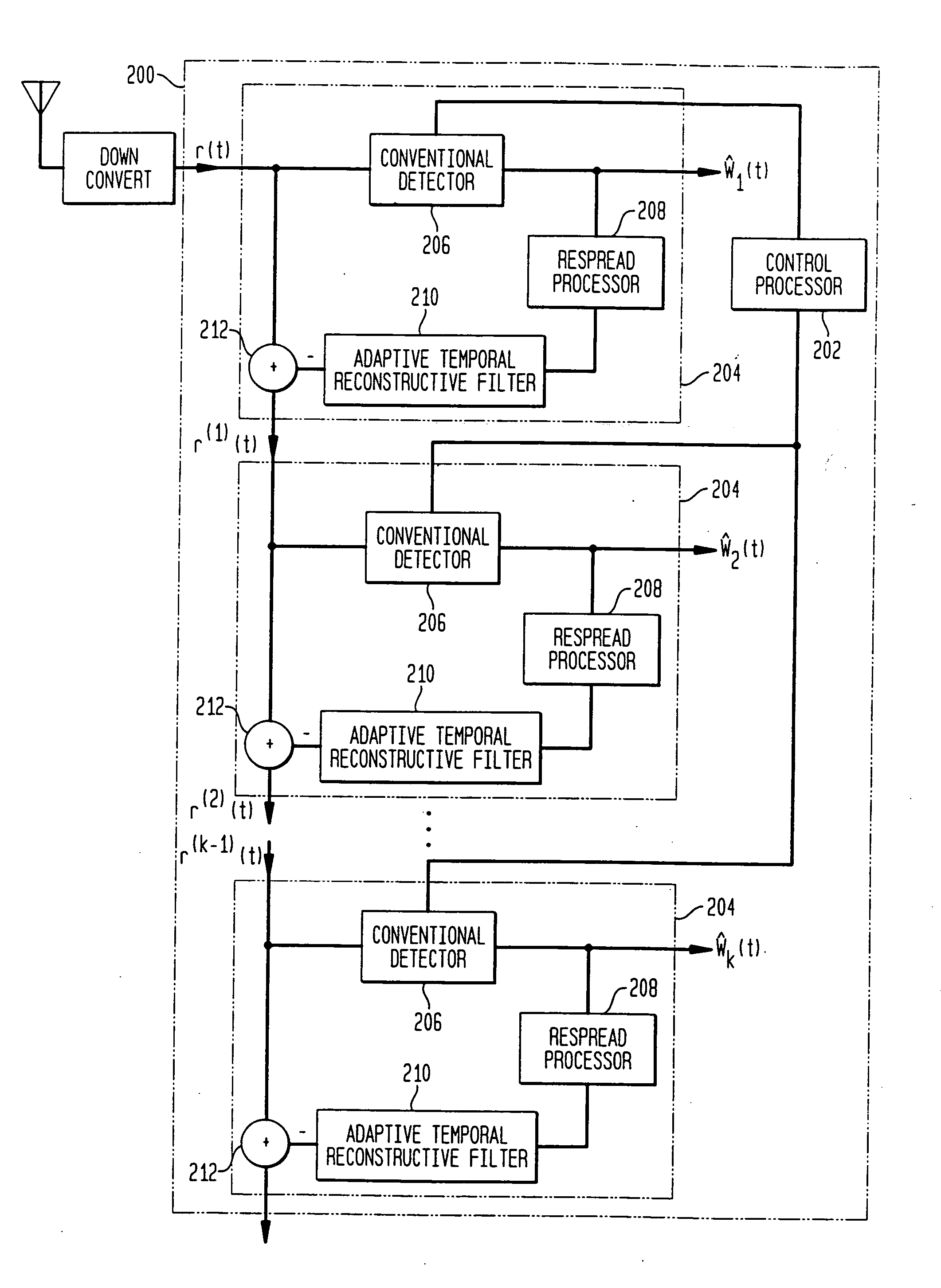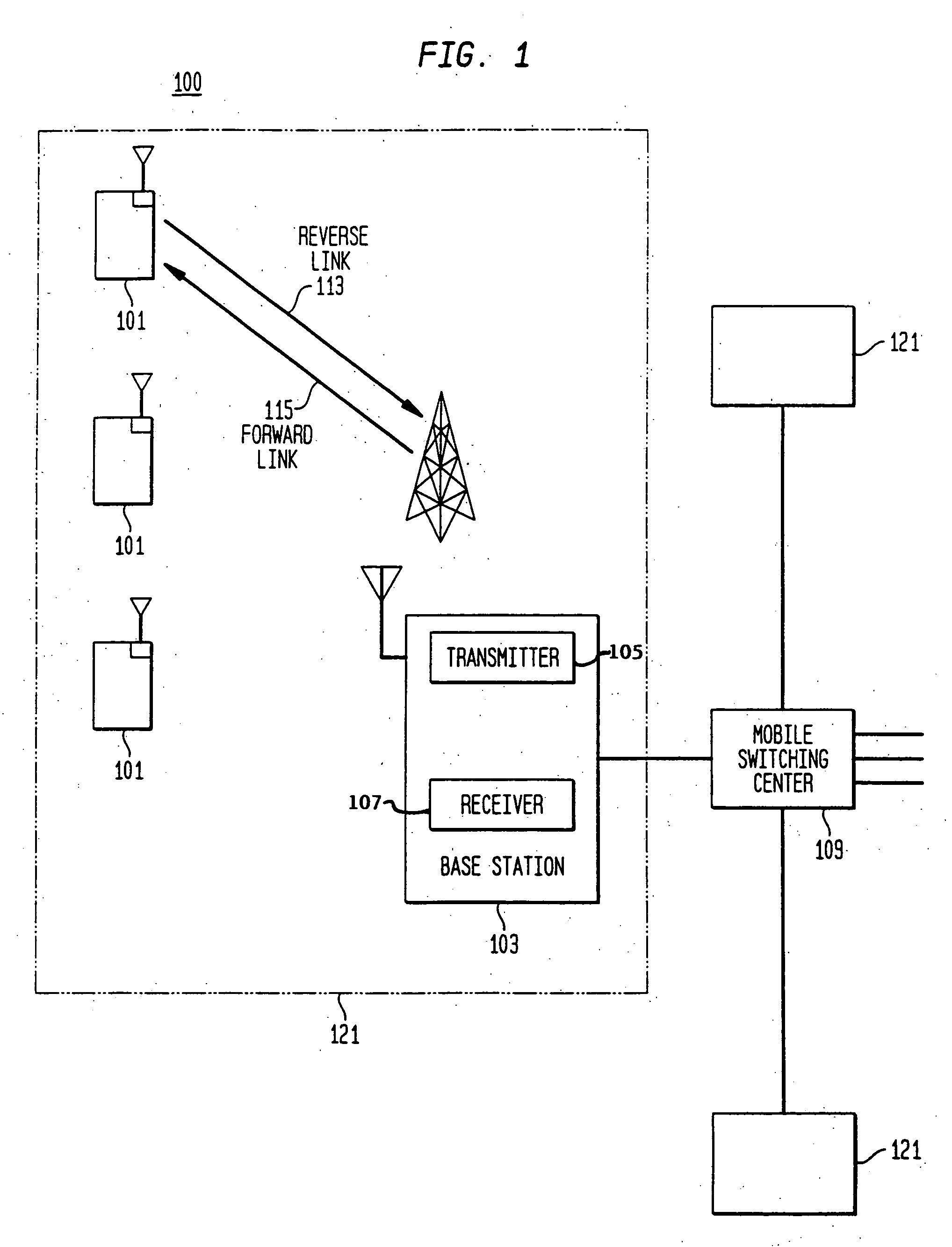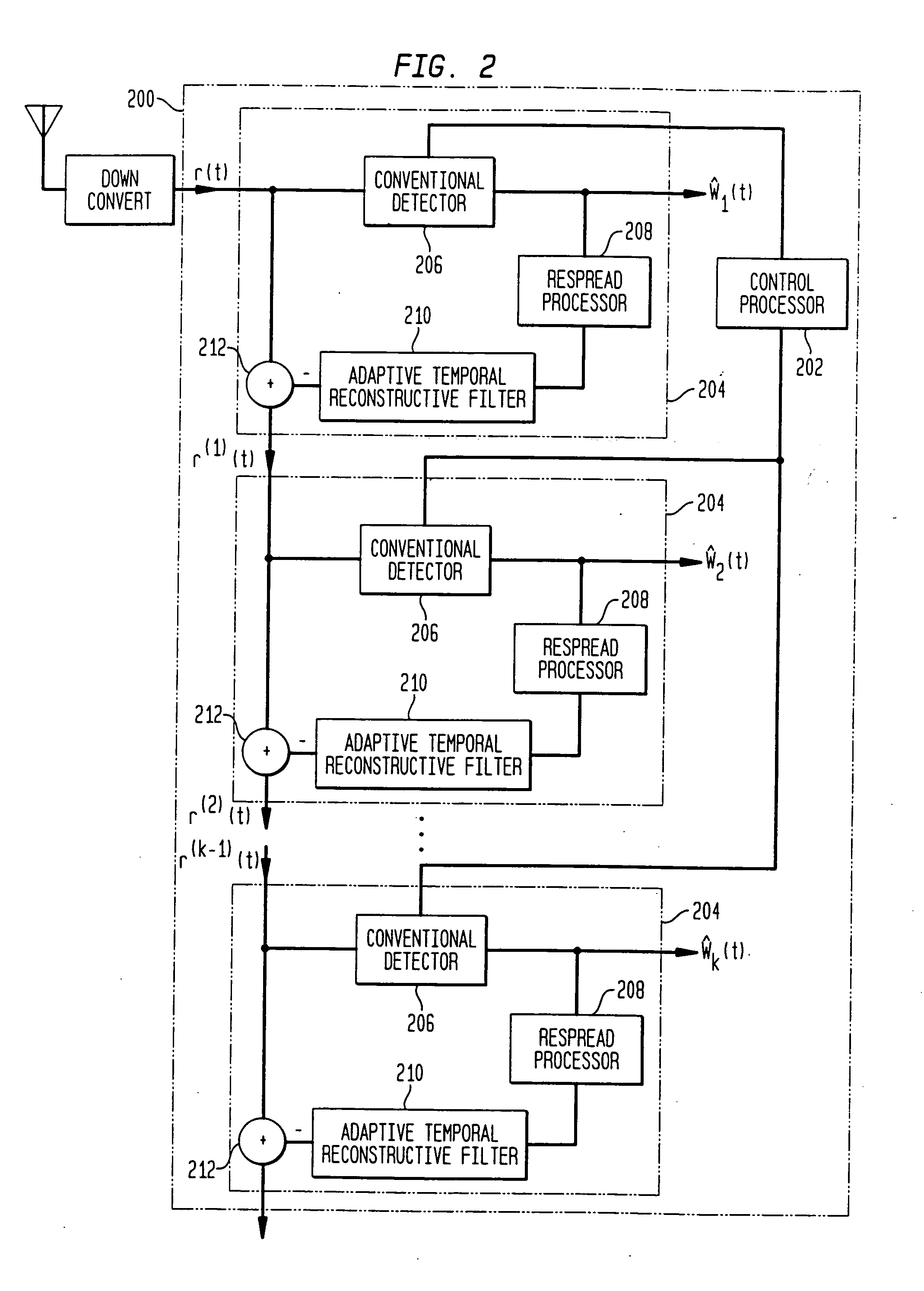Combined adaptive spatio-temporal processing and multi-user detection for CDMA wireless systems
a wireless system and spatio-temporal processing technology, applied in wireless communication services, wireless commuication services, electrical appliances, etc., can solve the problem of limited number of multipath components, achieve the effect of reducing residuals, better detecting each individual user, and less interference from multiple accesses
- Summary
- Abstract
- Description
- Claims
- Application Information
AI Technical Summary
Benefits of technology
Problems solved by technology
Method used
Image
Examples
Embodiment Construction
I. Interference Cancellation MUD Combined with Adaptive Temporal Channel Estimation
[0034] Interference cancellation can take the form of either successive interference cancellation or parallel interference cancellation. FIG. 2 depicts one illustrative embodiment of our invention comprising a system 200 combining successive interference cancellation (SIC) and adaptive minimum cost channel estimation (MCCE) for enabling a CDMA receiver to receive signals at different power levels in the presence of interference from other users. We shall refer to this combination as the SIC-MCCE system. The SIC-MCCE system 200 can be implemented as a component within an auxiliary CDMA receiver or within a CDMA base station receiver system.
[0035] The illustrative system of FIG. 2 comprises a control processor 202 and a plurality of processors 204 combining successive interference cancellation (SIC) multi-user detection and adaptive temporal reconstruction filters (ATRF). The plurality of SIC-ATRF proc...
PUM
 Login to View More
Login to View More Abstract
Description
Claims
Application Information
 Login to View More
Login to View More - R&D
- Intellectual Property
- Life Sciences
- Materials
- Tech Scout
- Unparalleled Data Quality
- Higher Quality Content
- 60% Fewer Hallucinations
Browse by: Latest US Patents, China's latest patents, Technical Efficacy Thesaurus, Application Domain, Technology Topic, Popular Technical Reports.
© 2025 PatSnap. All rights reserved.Legal|Privacy policy|Modern Slavery Act Transparency Statement|Sitemap|About US| Contact US: help@patsnap.com



